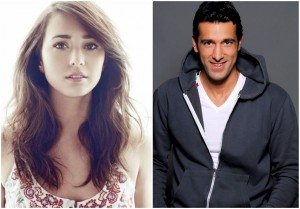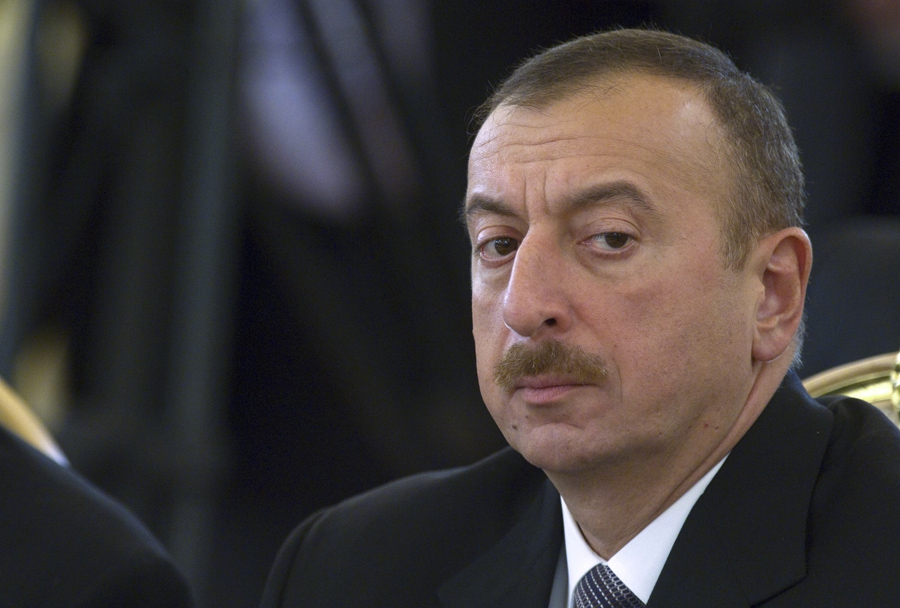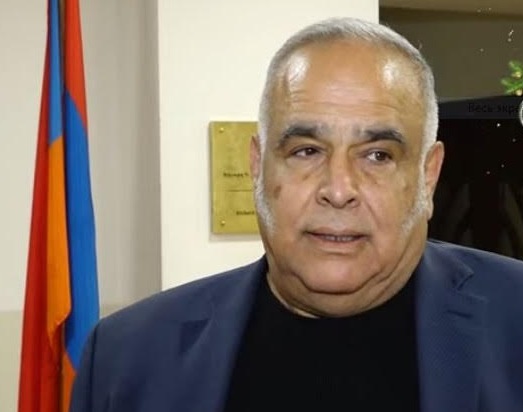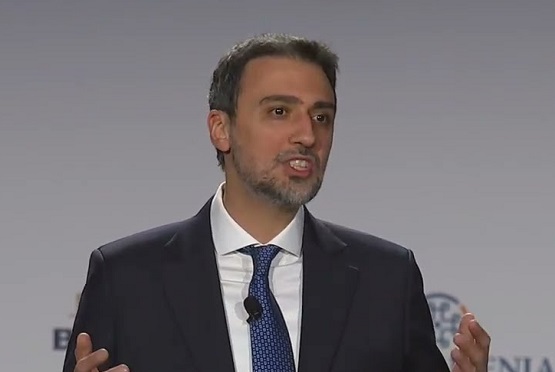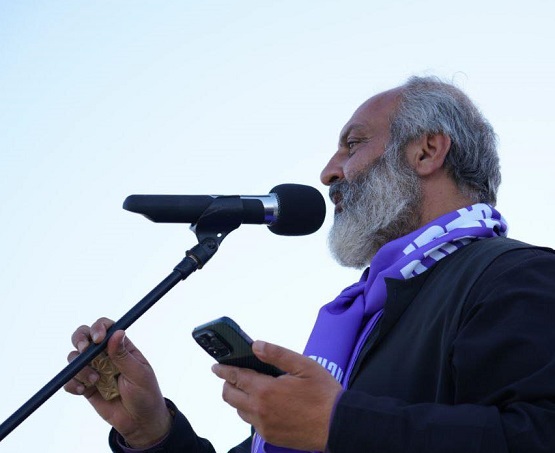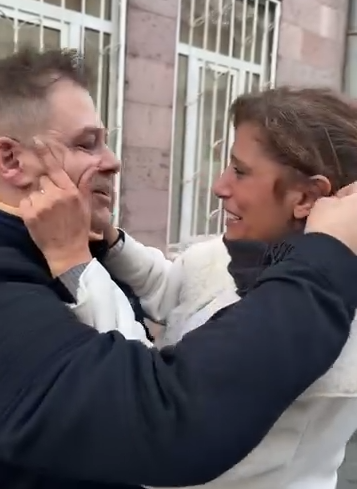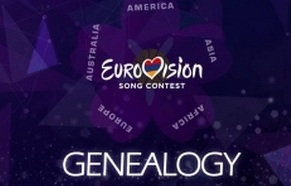 armenianweekly.com: Kaprelian to Join ‘Genealogy’ in Representing Armenia at Eurovision
armenianweekly.com: Kaprelian to Join ‘Genealogy’ in Representing Armenia at Eurovision
VIENNA, Austria (A.W.)—Diasporan artists from five continents will represent Armenia in the 2015 Eurovision Song Contest that will take place in Vienna this May. Their song, “Don’t Deny,” has already enraged some in neighboring Azerbaijan.
“Peace, unity, and tolerance—that will be the key message of the Armenian entry in this year’s Eurovision. Inspired by the symbol of a forget-me-not flower and of ‘Building Bridges,’ the slogan of the contest, a wholly new concept was born,” read the description on the Eurovision site. The forget-me-not flower has been adopted by Armenia and Armenian organizations as a symbol for the Armenian Genocide Centennial.
The musicians, who hail from Europe, Asia, America, Africa, and Australia—and are all of Armenian origin—have adopted the name “Genealogy.” According to the official website of the Eurovision Song Contest (Eurovision.tv), this will be the first time a country will participate with performers from different parts of the world.
Armenia’s aim was to bring together a group of Armenian musicians who are descendants of genocide survivors, according to reports. The number of performers is also symbolic—the five members from the diaspora represent the petals of the forget-me-not flower. The group will be unified by a sixth artist from Armenia, who will symbolize the center of the flower.
So far, two of the six “Genealogy” members have been made public—the French Armenian musician Essai Altounian, and the New York-based singer Tamar Kaprelian.
Since the name of the song—“Don’t Deny”—was made public, there has been speculation that the title might refer to denial of the Armenian Genocide, the Centennial of which is being commemorated this year.
France’s entry has also been accused of referring to the Armenian Genocide. The song is entitled, “N’oubliez Pas” (“Don’t Forget”). According to Eurovision.tv, it was first performed at a concert in November 2014, at a World War I commemoration event, and “the singer emphasizes that the song refers not only to this very special event in history, but to any kind of conflict.”
Although there has been no explicit mention of the Armenian Genocide from the organizers, Azeri media outlets have accused both Armenia and France of politicizing the music event.
Azerbaijan’s Public Television and Radio Broadcasting Company (ITV) issued a statement saying, “This contest can’t be a victim of any country’s political ambitions and converted into a political arena. The Public Television and Radio Broadcasting Company states that if the news is confirmed, we will also take appropriate steps in the contest.”
Turkish fans of the Eurovision Song Contest have launched a petition on change.org, demanding that the European Broadcasting Union (EBU) disqualify both Armenia and France, claiming the entries are “completely against the rules.”
This is not the first time the Eurovision Song Contest has been embroiled in controversy. In 2009, Azerbaijani authorities tracked and interrogated more than 40 citizens who had voted for Armenia’s entry. The voters had to justify their choice and affirm their allegiance to their country. Also that year, the EBU found that the Azerbaijani broadcaster Ictimai Televiziya had intentionally distorted the TV signal to blur out the telephone number during Armenia’s performance. Similarly, during the 2010 Junior Eurovision, Baku authorities were accused of taking the live broadcast off air when it became clear that Armenian Vladimir Arzumanyan would win.
In 2010, Armenia’s entry to the contest, “Apricot Stone,” was seen as carrying a political message. A Turkish composer claimed that the song was about the Armenian Genocide, and that “motherland” referred to lands under Turkish control.
Eurovision bans songs that have a clear political message. In 2009, Georgia’s representatives were asked to change the words “we don’t wanna put in” which, they believed, targeted then-Russian Prime Minister Vladimir Putin. Georgia, in turn, withdrew from the contest, which was held in Moscow.
The Eurovision Song Contest 2015 will take place from May 19-23.




